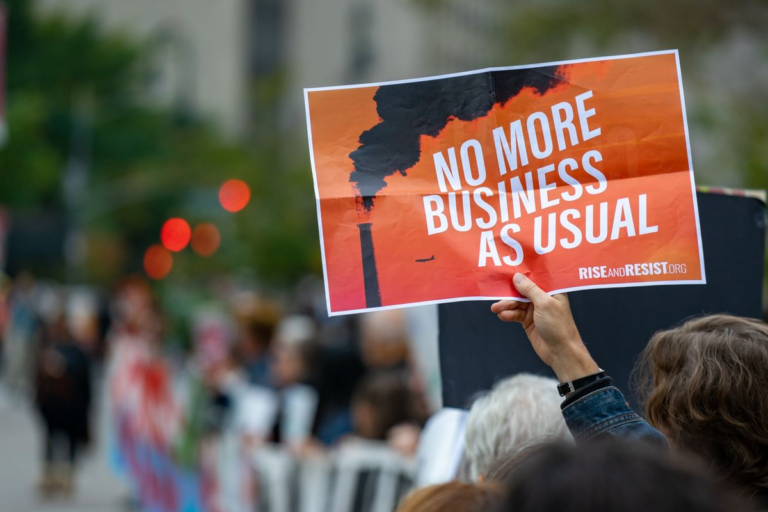
Happy Tuesday. A policy landslide occured this week, the EU in particular is looking to slim down their carbon waistband with the ‘Fit for 55’ plan.
In today’s edition:
🍷 A glass of sustainably produced wine
🍫 The future of chocolate’s in the lab
💸 Who and what is $VOTE?

Unilever Carbon Labels… coming to a Pot Noodle near you
Food and consumer goods giant, Unilever, is set to introduce carbon footprint labels across 30,000 of its products (Magnum, Pot Noodle, Marmite) by the end of the year.
The big deal: 1) Empowering consumers to make lower carbon lifestyle choices. 2) Labels may place pressure on suppliers to rethink the way they make their products. With Unilever working with over 60,000 suppliers to understand the environmental impact of their food this could lead to far-reaching improvements – particularly as the UN predicts a third of all greenhouse emissions come from the food industry.
Caution… Frequent readers know the challenges ESG reporting faces due to multiple competing frameworks. A single, consistent approach to labelling is critical to enabling comparison across brands’ products and ensuring transparency.

Martini’s 100% sustainable grape production
The environmental impact of wine making is larger than you may think, due to reliance on fertilisers and pesticides. In France, vineyards only cover 3% of agricultural land, yet account for 20% of pesticide use which damages biodiversity. Martini, part of the Bacardi brand, announced that all its Asti (a type of grape) suppliers are to be certified by Equalitas as sustainable by 2022. Martini aims to achieve this by controlling pests without chemicals (i.e. through insects, animals or plants) and placing environmental conservation at the heart of all growing practices (known as integrated viticulture).
Why’s it important? Chemical inputs depletes the soil’s nutrients due to toxic side-effects on microorganisms. Fewer chemical inputs mean more nutrient dense soils, improved long-term plant growth and a more resilient supply chain.
Policy Highlights:
- China kicks off the world’s largest carbon trading exchange to penalise heavy emitters whose emissions exceed their quotas. The scheme will cover 7% of all global greenhouse gas emissions (although timelines TBC).
- EU gets ‘Fit for 55’ to achieve 55% emissions reduction by 2030, while the UK Government publishes world’s first ‘greenprint’ to decarbonise all domestic transport by 2050
- China marks 25% of its territory for environmental protection limiting development and human activity
🤖 Future of Tech (1-minute read)
“World’s first large-scale system” for floating offshore windfarms
We’ve pointed-out the benefits of offshore wind farms before, and last week ScottishPower and Shell submitted a joint bid to develop large-scale floating offshore wind farms off the northeast of Scotland. Although no details have been provided on potential output, both energy companies have claimed it would be the “world’s first large-scale system” for offshore wind tech. This move comes off the back of the UK government’s vision for the UK to create 40GW of offshore wind.
But why? Traditional wind farms require lots of land – a 200 megawatt wind farm needs 19 square miles. In a country as densely populated as Britain, floating wind farms could be a game changer for renewable energy production.

Lab-Grown chocolate – the future of sustainable confectionery?
We’ve harped on about lab-grown meat… but Swiss researchers have just made chocolate in a bioreactor for the first time. Using cell cultures extracted from cocoa beans the chocolate is ‘Grown’ then combined with ingredients for aroma and texture.
Ease the strain: Growing worldwide demand for chocolate has strained the entire supply chain, leading to issues including mass deforestation and child labour. Lab-grown chocolate can help to ease this strain (with caution not to bypass agriculture and deprive farmers in developing nations), whilst requiring a fraction of water, pesticides and transport emissions. The tech is currently not operating at scale but it could soon be the answer to getting our sweet fix ethically.
💡Start-up Spotlight (1-minute read)
Shareholder Engagement… Historically, ‘value-aligned’ investing has been synonymous with avoiding the purchase of certain stock a.k.a ‘divestment’
An alternative is ‘engagement’ by owning a stock, and using your rights to vote on shareholder proposals you can attempt to change the company from the inside (or even nominate candidates to try to replace management entirely).
We spoke previously about how an activist hedge fund, Engine No. 1, managed to secure three seats on the board of oil giant Exxon Mobil. Fresh off their victory, the hedge fund has just launched an investment fund to drive systemic change in 500 US companies – The $VOTE ETF is innovative and here’s why …
‘Index activism’: When you invest in an index fund the fund manager uses your money to buy stocks in a number of companies on your behalf. You benefit financially if these stocks rise but the fund holds the rights to participate in each company’s internal votes.
The largest fund managers (Vanguard, BlackRock, State Street) are collectively the biggest shareholders in most companies but have historically been reluctant to challenge management – therefore when investing through index funds, the full potential of shareholder engagement to drive change hasn’t been fully tapped.
Power to the people: Until now, Activist shareholder campaigns have generally been led by hedge funds (like Engine No.1). By launching a fund anyone can invest in, $VOTE, looks to change that, enabling your money to directly support whatever engagements Engine No. 1 launches next. The bigger it gets, the more it can drive change in companies to improve sustainable practices.

💭 Little Bytes
Quote: “We vulnerable countries are not asking for much – just that richer countries, who have caused this problem (Global Warming), take responsibility by cutting their emissions and keeping their promise to help those their emissions have harmed.” Chair of the LDC (Least Developed Countries) group for Cop26, Sonam P. Wangdi of Bhutan.
Stat: Circular economy could deliver 80% of the UK’s next carbon budget – Aldersgate Group
Watch: The farm that grows fruit and veg under the sea
🗞 In other news…
- Airlines United and Mesa to purchase electric planes for short haul trips
- Royal Mail to switch company cars to EVs by 2030
- Indian fish farmer network Aquaconnect is digitising the seafood production value chain
- Nestle to enter the cell-cultured meat market with new partnership
- Elon Musk to build US’s first Solar-powered town near Austin




